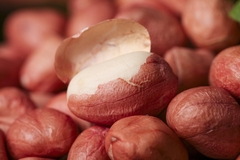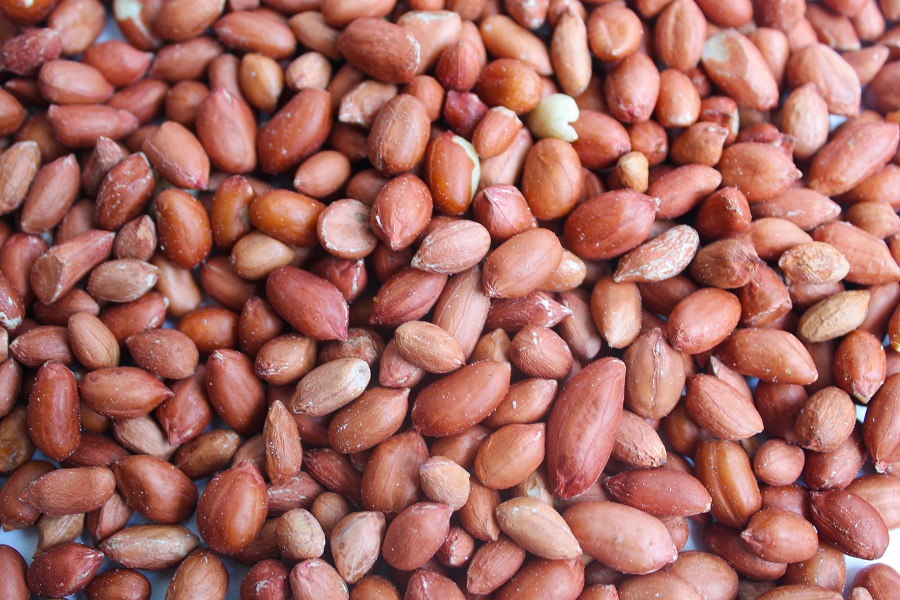Unsalted skin-roasted peanuts boost brain vascular function and memory, study supports
Key takeaways
- Daily consumption of unsalted, skin-roasted peanuts may improve brain vascular function and verbal memory in older adults.
- In a study, consuming 60 g of peanuts for 16 weeks increased global cerebral blood flow by 3.6% and enhanced verbal memory by 5.8%, while also reducing blood pressure.
- Peanuts contain compounds like L-arginine and polyphenols which may explain the observed benefits to brain vascular and cognitive function.

Consuming unsalted, skin-roasted peanuts may significantly improve brain vascular function and memory, according to a new study by Dutch researchers. Their findings support that consuming 60 g (approximately two servings) of peanuts daily for 16 weeks increases global cerebral blood flow by 3.6% and verbal memory by 5.8%.
The research involved 31 healthy older adults between the ages of 60–75. Next to cognitive improvements, their systolic blood pressure and pulse pressure decreased by 5 mmHg and 4 mmHg, respectively.
Snacking on peanuts also resulted in increased blood flow in the frontal and temporal lobes of the brain, which are both important for memory and other cognitive functions.

“Cerebral blood flow is an important physiological marker of brain vascular function and refers to the amount of blood that flows through the brain, delivering oxygen and nutrients that are essential for maintaining brain health,” says co-author Dr. Peter Joris. He is also an associate professor in the Department of Nutrition and Movement Sciences at the Institute of Nutrition and Translational Research in Metabolism (NUTRIM) , Maastricht University Medical Center, the Netherlands.
“We found that longer-term consumption of unsalted, skin-roasted peanuts improved global cerebral blood flow, which suggests an overall enhancement in brain vascular function.”
Beneficial compounds
Peanuts are particularly rich in plant-based protein and contain high concentrations of L-arginine, an amino acid important for vascular health. “They are also a valuable source of unsaturated fats and polyphenols, both known to support vascular function,” adds Joris.
“For this study, skin-roasted peanuts were chosen because the peanut skin contains additional dietary fiber and natural plant compounds, specifically antioxidants. Together, these nutrients may help explain the beneficial health effects of skin-roasted peanuts observed in this study.”
 Peanuts are particularly rich in plant-based protein and contain high concentrations of L-arginine, an amino acid important for vascular health.The NUTRIM scientists highlight that their study combined a well-controlled, longer-term dietary intervention with MRI scans.
Peanuts are particularly rich in plant-based protein and contain high concentrations of L-arginine, an amino acid important for vascular health.The NUTRIM scientists highlight that their study combined a well-controlled, longer-term dietary intervention with MRI scans.
They evaluated cognitive performance using the Cambridge Neuropsychological Test Automated Battery.
Cracking peanut benefits
The study, published in the journal Clinical Nutrition, was a randomized, controlled crossover trial in which participants in the intervention group were given premeasured packets of skin-roasted peanuts. Participants were instructed to consume these in the morning or afternoon.
They were allowed to eat the daily amount all at once, spread it out over the day, or add the peanuts to their meals. Meanwhile, the control group was not fed peanuts.
After 16 weeks, the groups switched conditions to further evaluate the benefits of peanut consumption.
“For the first time, we demonstrated that peanut intake improved brain vascular function in healthy older adults. These favorable effects may help explain the observed improvements in memory, providing novel mechanistic insight into how regular peanut consumption can beneficially affect cognitive function,” says Joris.
The NUTRIM study was funded by The Peanut Institute Foundation, which did not have a role in the study design, implementation, analysis, and interpretation of the data, or manuscript writing.
Previous research found that consuming peanuts early in life may protect against allergies into adolescence. A separate study supported that women eating peanuts while breastfeeding may have a higher chance of protecting their children from this common early childhood food allergen.













